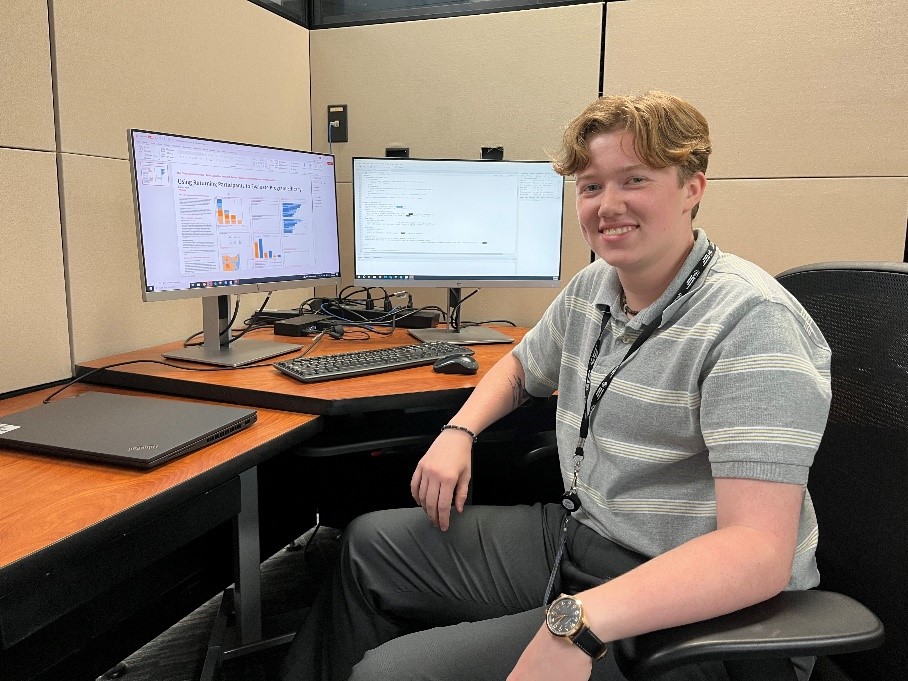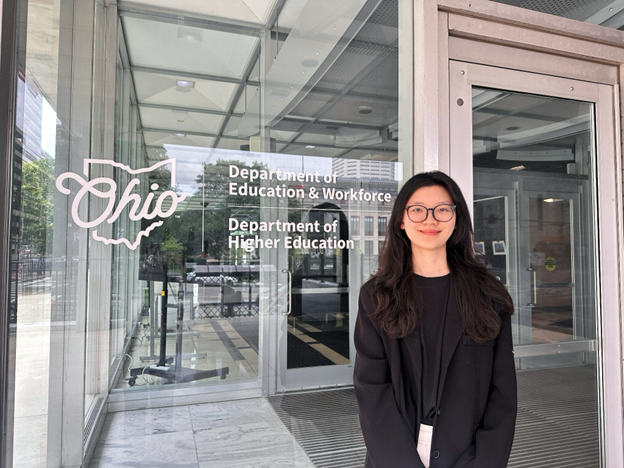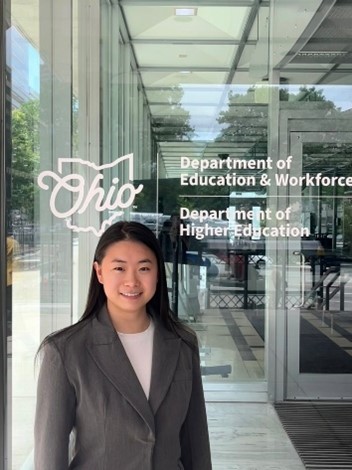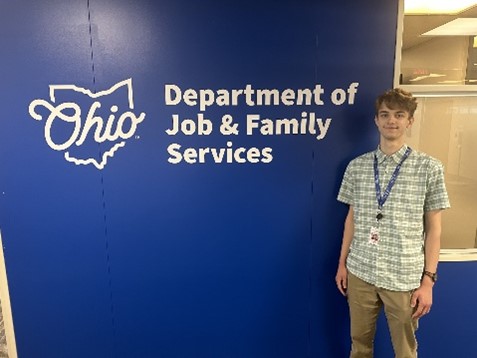The Ohio Education Research Center — a collaborative of the John Glenn College of Public Affairs and the CHRR — offers the Public Sector Data Science Internship Program for students interested in exploring careers in policy research and evaluation. This year, we were very excited to host three interns at state agencies across Columbus. Continue reading to learn more about the work they accomplished this summer.
Our first intern of the week is Samuel Gadkar. Samuel is going into his third year of his Bachelor of Science in Data Analytics with a minor in economics at the College of Arts and Sciences. He interned with the Ohio Department of Jobs and Family Services to analyze data from their Re-employment Services and Eligibility Assessment program and uncover if RESEA was helping those it was intended for. His reflections on the internship are shared below:
My name is Samuel Gadkar and I am entering my third-year majoring in Data Analytics with a minor in Economics. This summer, I am interning at the Ohio Department of Job and Family Services (ODJFS). I was excited about the opportunity to be a PSDS intern due to the field of data science I would be working in. When you hear about data science, you often think about well-known private sector businesses, but I was intrigued to see how the data science field runs on the public sector side.
With ODJFS, I did some analysis on their Re-employment Services and Eligibility Assessment (RESEA). RESEA is a program that aims to help individuals who are receiving unemployment benefits along with some other program such as Supplemental Nutrition Assistance Program (SNAP), Temporary Assistance to Needy Families (TANF), or Child Support (CS). My portion of the work focused on people who were receiving unemployment benefits and SNAP in some combination of each other. Specifically, I worked to uncover if RESEA was helping those it was intended for, along with seeing which individuals we could include in this program. Using SQL and Tableau, I was able to gather, join, and visualize all the necessary data.
My favorite part of the internship was getting to immerse myself in the data science field. My supervisor at ODJFS guided me throughout the summer, helping me learn new programs and understand how my work is going to be used. Additionally, getting to meet people who worked in the data science field on Fridays allowed me to see all the ways that data science is used in the public sector. I believe the most challenging part was having to learn two new programs (SQL and Tableau). I have used programs such as C++, Java, and R, but never touched SQL or made visualizations in Tableau before this summer.
I would highly suggest students to pursue this internship. I felt like everyone at OERC and ODJFS wanted to see me succeed and grow. Their guidance really helped me improve my data science skills, while also learning what it is like to work in the world of data science. Without this internship, I wouldn’t have realized how much I enjoyed working in the public sector.
See Samuel Gadkar's Poster





